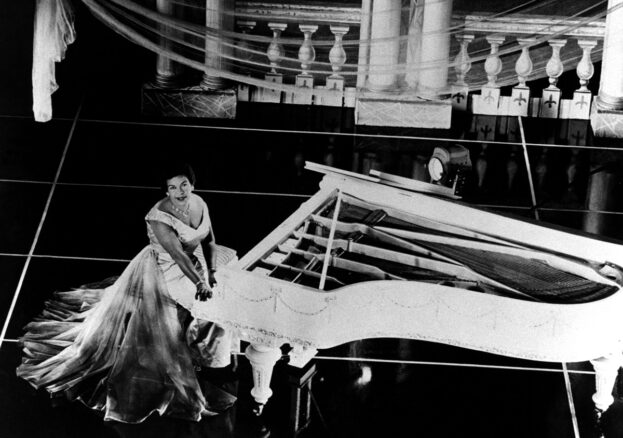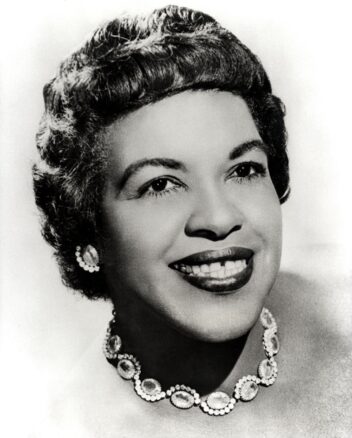
Winifred Atwell wasn’t just a pianist; she was a force of nature. In a post-war Britain that was still finding its feet, this dynamic woman from Trinidad lit up the music scene with a vivacious style that broke all the rules—and broke down barriers in the process. Her charm, her talent, and her honky-tonk piano made her a household name, and she won over a nation that was far from welcoming to Black artists at the time.
Born on 27 February 1914 in Trinidad, Atwell was a classically trained pianist who was anything but conventional. While her early years saw her mastering the works of the great composers, she felt a stronger pull toward the rhythms and melodies of popular music. She knew that her honky-tonk sound—produced by her beloved “other” piano—was something special. It was playful, joyful, and brought a sense of fun to every performance. And it was this distinct sound that captured the hearts of audiences across the UK.

When she moved to London in the 1940s, Atwell brought with her not just classical training but a deep understanding of the music that connected with everyday people. Post-war Britain was a country searching for hope and escape, and Winifred Atwell’s music provided just that. She wasn’t playing for the elite. As she proudly declared, “I’m not concerned with music for the elite, but for the man in the street.” And she meant it. Her music resonated with the working class, who saw in her a kindred spirit—someone who didn’t put on airs, someone who was making music for everyone, not just the privileged few.
Atwell became the first Black woman to have a number one hit in the UK Singles Chart with her 1954 smash, “The Poor People of Paris.” This was no small feat. At a time when Black artists were often sidelined in the music industry, Atwell’s success was nothing short of revolutionary. She was more than just a performer—she was a trailblazer who helped pave the way for future generations of Black artists in Britain. Her vibrant personality and lively performances on stage and television made her a national treasure.
But Atwell’s impact was about more than just music; it was about connection. She had a way of bringing people together, regardless of race or class. With her upbeat rhythms and infectious energy, Atwell crossed boundaries and broke down walls. She knew how to make people feel good, and that was her secret. As she once said, “It was the ordinary people, the poor people, who liked my honky-tonk sound best, and I played for them.” She played for the people, and the people loved her for it.
Her performances were full of joy and vitality. Atwell didn’t just sit at the piano—she brought it to life. Whether she was playing a ragtime tune or giving a classical piece her unique twist, Atwell made music feel approachable and fun. It was this combination of extraordinary talent and an ability to connect with audiences that made her a true star.
But success didn’t come without challenges. Atwell knew all too well what it meant to face barriers as both a woman and a Black artist in a predominantly white industry. Yet, she never let that stop her. Her determination was clear: “I was determined to be a success, no matter what it took.” And succeed she did—leaving a legacy that still resonates today.
Winifred Atwell didn’t just break into the music scene—she shattered expectations and opened doors for future Black artists in Britain. Her legacy is not just one of incredible music but of resilience and triumph over adversity. She showed that talent, when combined with passion and determination, can break through even the toughest barriers.
Winifred Atwell may have passed away in Australia in 1983, far from the country where she had made her name, but her influence continues to resonate loud and clear. She didn’t just pave the way for future generations of Black artists in Britain—she showed that success could be achieved in the face of adversity, no matter the obstacles. Her music was more than a soundtrack; it was a statement. It was proof that talent, determination, and a pioneering spirit could overcome even the toughest barriers.
Winifred Atwell’s legacy lives on, not just as a key part of Black history, but as an integral part of British history as a whole. Her vibrant sound, her boldness, and her joy in music continue to inspire, reminding us all that breaking barriers is possible—and sometimes, all it takes is a honky-tonk piano and a whole lot of heart.
